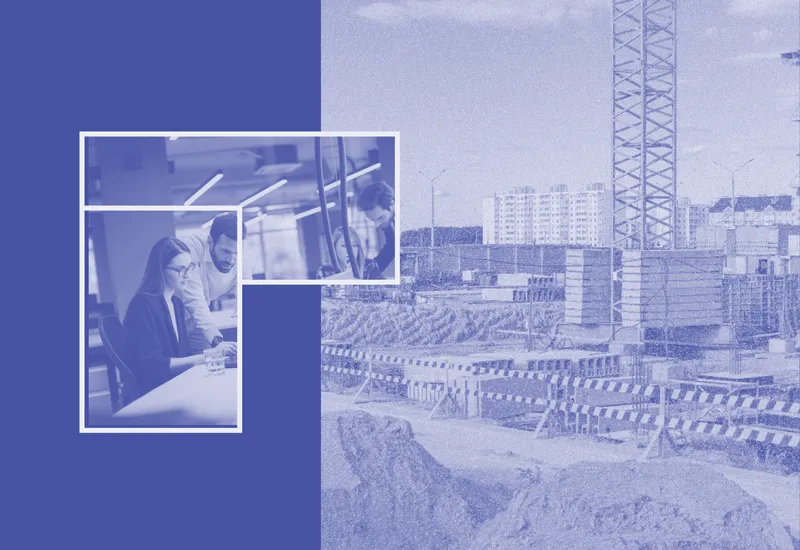The Real Estate Developers Handbook: The Role of Budgets in CRE

A well-managed budget is the cornerstone of successful commercial real estate development. It serves as both a roadmap and a control mechanism, ensuring projects remain financially viable from breaking ground to completion.
Before diving into real estate budget best practices, here are some common terms you'll need to master.
Key Terms:
- Budget: A budget in a real estate development project is a financial plan that outlines the estimated costs and expenditures required to complete the project successfully. It serves as a guideline for managing expenses and ensuring that the project remains financially viable. It is often broken down into line items and divisions.
- Contract: A contract is a legally binding agreement between parties involved in a real estate development project. It outlines the terms, conditions, rights, and obligations of each party, including the scope of work, payment terms, and project milestones.
- Change Order: A change order is a formal document that outlines modifications or adjustments to the original scope of work. It is typically initiated when there is a need to make changes due to unforeseen circumstances, design alterations, or client requests.
- Potential Change Order: A potential change order refers to a proposed modification to the project scope, budget, or schedule that has been identified but not yet officially approved. It is under consideration pending review and approval by relevant stakeholders.
- Exposure: Exposure refers to the potential financial risk or liability that the project stakeholders, such as investors, developers, or contractors, may face due to uncertainties, cost overruns, or other adverse events that could impact the project’s budget or profitability.
- Contingency: Contingency serves as a financial buffer to cover unexpected expenses, scope modifications, market fluctuations, or any other uncertainties that could impact the project’s cost or timeline. Contingency funds provide a safety net, allowing developers to respond effectively to challenges without jeopardizing the overall viability and success of the project.
- Anticipated Cost Report: An anticipated cost report is a financial projection that estimates the future costs of a real estate development project based on current progress and anticipated changes. It helps stakeholders understand and plan for potential expenses.

What's Included in a Construction Budget
A comprehensive CRE construction budget typically includes hard costs, soft costs, and contingency reserves.
Hard costs represent the direct expenses associated with physical construction. These include site work and excavation, building materials, supplies, and labor costs. You might also need to budget for mechanical, electrical, and plumbing (MEP) systems. This encompasses the installation of HVAC, electrical wiring, and plumbing infrastructure. Hard costs also include exterior and interior finishes, including walls, roofing, flooring, and painting.
Soft costs encompass the indirect expenses related to the project's development and financing. These include architectural and engineering fees for design and planning services. Permits and inspection fees are required for compliance with building codes and regulations. Legal and accounting fees cover professional services during the development process. Insurance and bonds provide coverage against risks and financial obligations. Property taxes during construction cover levies on the property during the development period. Construction loan interest represents the cost of financing the project. Lastly, marketing and leasing costs cover expenses related to attracting tenants and securing leases.
Contingency reserves are typically allocated as 5-10% of the total project costs. This crucial provision serves as a buffer for unforeseen expenses or changes that might occur during the construction process.
Who Manages a Construction Budget?
Real estate developers take primary responsibility for construction budget management, working closely with a team of professionals to ensure effective cost control. The developer typically assigns a project manager who oversees daily budget tracking, approves expenses, and monitors cash flow throughout the construction process. This individual serves as the central point of contact between contractors, subcontractors, and other stakeholders, ensuring all expenditures align with the approved budget.
The management process involves regular meetings with construction managers, architects, and financial controllers to review costs, track progress, and address any budget variances. Developers might use real estate development software to maintain real-time budget tracking, forecast expenses, and generate detailed financial reports that help identify potential cost overruns before they become significant issues.
Rabbet's Top Tips for Managing a CRE Budget
It takes time to learn how to manage a commercial real estate budget, but once you get the hang of it, you'll learn how to make the process more efficient for your organization. Here are some tips for finding efficiency more quickly.
- Start with thorough due diligence: Research market conditions thoroughly, obtain multiple contractor bids, and review historical data from similar projects.
- Implement strong change order controls: Establish a formal review process. When changes occur, document them and assess the impact on the timeline and budget.
- Maintain detailed documentation: Track all expenses in real time and keep organized records of all invoices. If the budget changes, be sure to record when and why.
- Use technology effectively: Implement real estate development management software to maintain cloud-based documentation.
- Hold regular budget reviews: Schedule regular budget meetings, monitor cash flow consistently, and compare actual versus projected costs.
- Build strong communication channels: Establish clear reporting hierarchies. and maintain open dialogue with stakeholders.
Successful CRE development hinges on effective budget management. Once you have a budget system in place, it's easier to control costs and deliver projects on time and within budget. Learn more about how Rabbet can help you achieve more profitable project outcomes.











